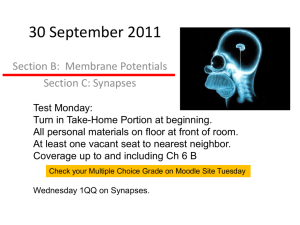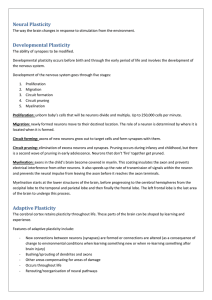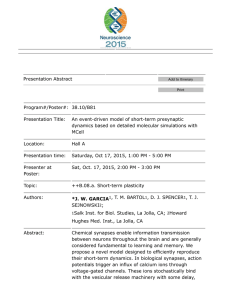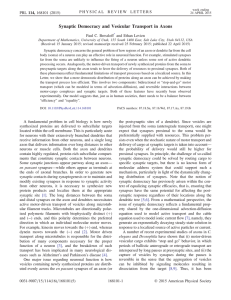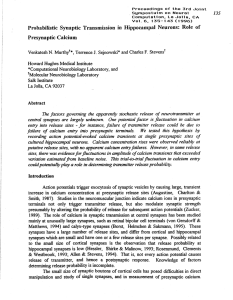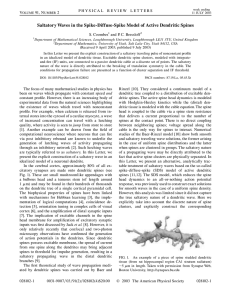Print this Page Presentation Abstract Program#/Poster#: 506.10/G8
advertisement
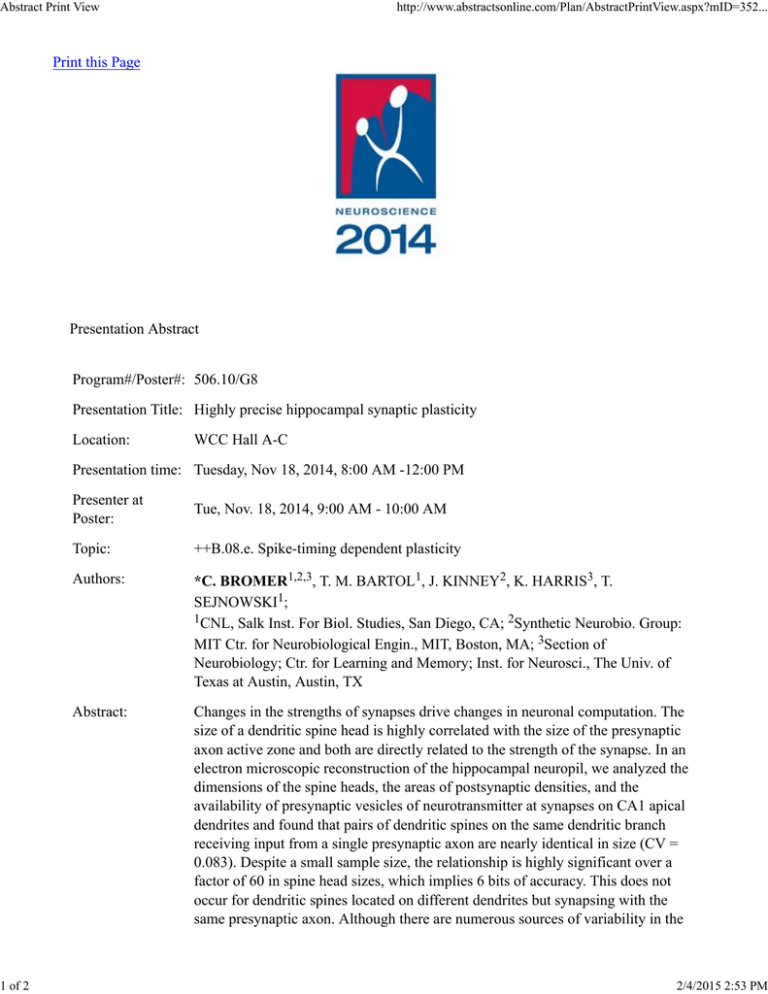
Abstract Print View 1 of 2 http://www.abstractsonline.com/Plan/AbstractPrintView.aspx?mID=352... Print this Page Presentation Abstract Program#/Poster#: 506.10/G8 Presentation Title: Highly precise hippocampal synaptic plasticity Location: WCC Hall A-C Presentation time: Tuesday, Nov 18, 2014, 8:00 AM -12:00 PM Presenter at Poster: Tue, Nov. 18, 2014, 9:00 AM - 10:00 AM Topic: ++B.08.e. Spike-timing dependent plasticity Authors: *C. BROMER1,2,3, T. M. BARTOL1, J. KINNEY2, K. HARRIS3, T. SEJNOWSKI1; 1CNL, Salk Inst. For Biol. Studies, San Diego, CA; 2Synthetic Neurobio. Group: MIT Ctr. for Neurobiological Engin., MIT, Boston, MA; 3Section of Neurobiology; Ctr. for Learning and Memory; Inst. for Neurosci., The Univ. of Texas at Austin, Austin, TX Abstract: Changes in the strengths of synapses drive changes in neuronal computation. The size of a dendritic spine head is highly correlated with the size of the presynaptic axon active zone and both are directly related to the strength of the synapse. In an electron microscopic reconstruction of the hippocampal neuropil, we analyzed the dimensions of the spine heads, the areas of postsynaptic densities, and the availability of presynaptic vesicles of neurotransmitter at synapses on CA1 apical dendrites and found that pairs of dendritic spines on the same dendritic branch receiving input from a single presynaptic axon are nearly identical in size (CV = 0.083). Despite a small sample size, the relationship is highly significant over a factor of 60 in spine head sizes, which implies 6 bits of accuracy. This does not occur for dendritic spines located on different dendrites but synapsing with the same presynaptic axon. Although there are numerous sources of variability in the 2/4/2015 2:53 PM Abstract Print View 2 of 2 http://www.abstractsonline.com/Plan/AbstractPrintView.aspx?mID=352... responses of synapses, including low neurotransmitter release probabilities, the precision indicated here suggests that the biochemical pathways inside excitatory hippocampal synapses is tightly controlled and in particular must be able to average the impact of input spike trains over many minutes. If similar precision is found at excitatory synapses on pyramidal neurons in the cerebral cortex then the capacity of the brain to store information may be much higher than previously thought. Disclosures: C. Bromer: None. T.M. Bartol: None. J. Kinney: None. K. Harris: None. T. Sejnowski: None. Keyword (s): SYNAPSE HIPPOCAMPUS SYNAPTIC PLASTICITY Support: NIH grant NS21184 NIH grant MH095980 NIH grant NS074644 NIH grant NS44306 NIH grant DA030749 2/4/2015 2:53 PM



